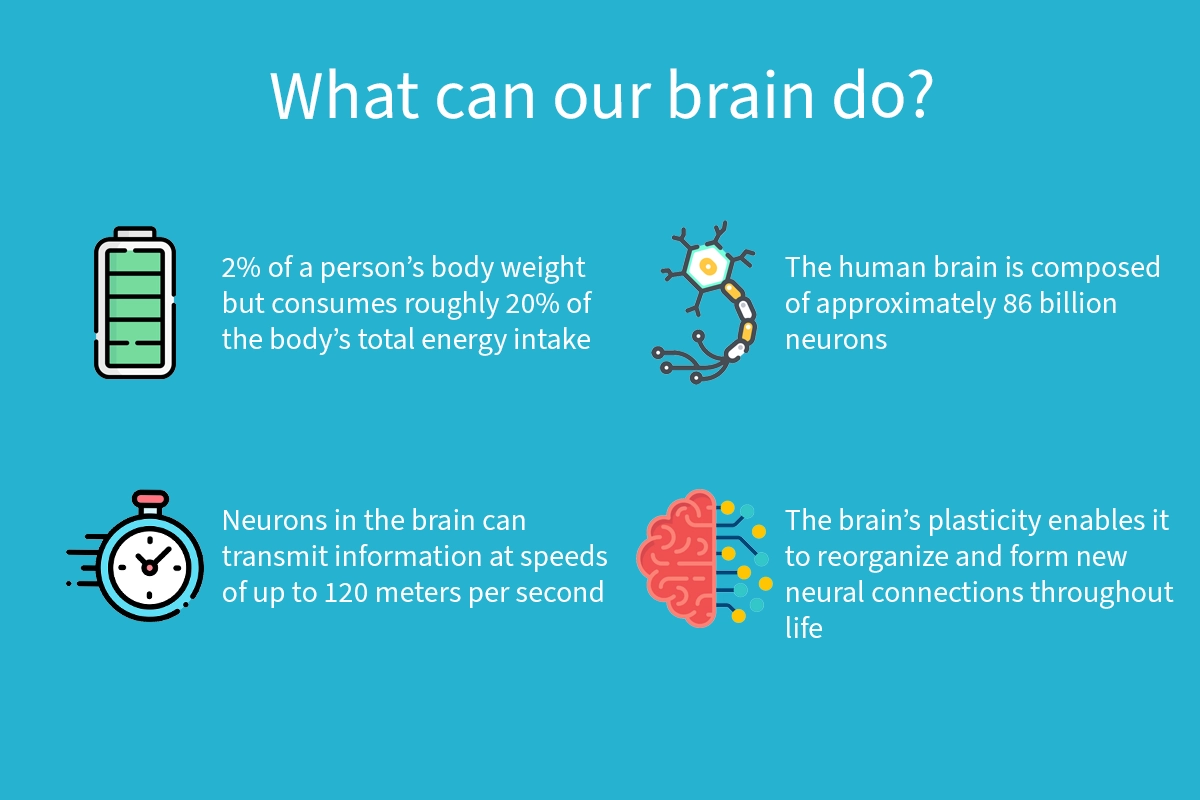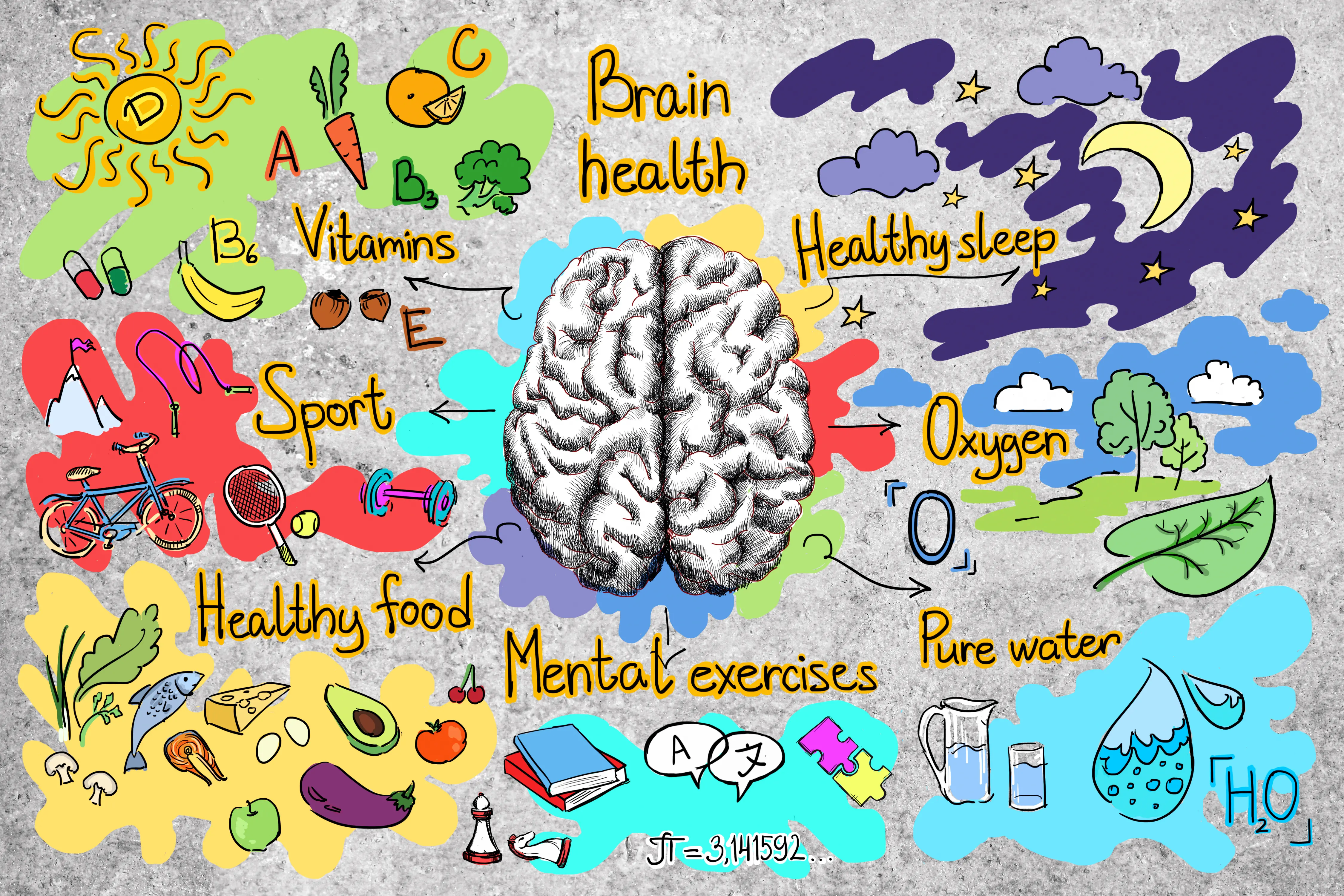
The human brain is a marvel of nature, an intricate organ that orchestrates every thought, action, and feeling we experience. It’s the command center of our bodies, enabling everything from simple reflexes to complex problem-solving and creativity. Whether you’re a student cramming for exams, a professional navigating work challenges, or a retiree pursuing a hobby, the capacity of your brain to adapt and excel is central to your daily life. Here, we explore the incredible power of the human brain with fascinating facts that reveal just how remarkable it truly is.

Energy Consumption and Efficiency
The human brain, despite representing only about 2% of our body weight, is an energy-hungry organ. It uses roughly 20% of the body’s total energy intake. This energy powers the brain’s nerve cells, or neurons, allowing them to perform critical tasks such as thinking, learning, and memory. This efficiency is impressive when you consider the brain's incredible workload in maintaining everything from your heartbeat to complex thoughts and emotions.
Neurons and Synaptic Connections
The brain is comprised of approximately 86 billion neurons. Each neuron can form thousands of synaptic connections with other neurons, creating a vast and intricate web of communication pathways. These synaptic connections are essential for transmitting information rapidly and efficiently. It's this network that underpins our abilities to process experiences, make decisions, and engage in creative thinking.
Speed of Neural Transmission
Neurons communicate with each other through electrical impulses and chemical signals, which can travel at remarkable speeds. Some of these neural impulses can move at up to 120 meters per second. This rapid communication is what allows us to react swiftly to environmental stimuli, ensuring we can navigate the world around us effectively and safely.
Neuroplasticity: The Brain's Adaptability
One of the most amazing features of the human brain is its plasticity. Neuroplasticity refers to the brain’s ability to reorganize itself by forming new neural connections throughout life. This adaptability is crucial for learning and memory, enabling us to acquire new skills, recover from injuries, and adapt to new situations. For instance, when someone learns a new language or instrument, their brain is literally reshaping and forming new connections to accommodate and master these new skills.
Memory Storage Capacity
The brain’s capacity to store information is virtually limitless, thanks to the expansive and dynamic network of neurons and synapses. Unlike a computer that has a fixed storage limit, the human brain continually adapts, creating and reconfiguring connections in response to new information and experiences. This capacity for near-unlimited memory storage underpins our ability to retain knowledge over decades, recall past experiences, and apply learning to new contexts.
Oxygen Dependency and Blood Supply
The brain's need for blood and oxygen is vital. Although it only makes up 2% of the body’s weight, it receives about 15-20% of the body's blood supply. The brain uses this blood supply to obtain the oxygen and nutrients it needs to function effectively. Even a brief interruption in oxygen supply can lead to damage, demonstrating just how critical a consistent blood flow is for brain health.
The Multitasking Myth
Many people believe they can effectively multitask, handling several tasks simultaneously with ease. However, studies indicate that the brain isn't optimized for multitasking. Instead, what we often do is rapidly switch focus from one task to another. This switching can reduce overall efficiency and increase the likelihood of making errors. Instead of multitasking, focusing on one task at a time often leads to better performance and outcomes.
Cognitive Biases and Heuristics
The brain uses mental shortcuts known as heuristics to make decisions more quickly and efficiently. While these shortcuts can be helpful, they can also lead to cognitive biases—systematic errors in thinking that affect the decisions and judgments we make. Common biases include confirmation bias, where we favor information that confirms our preexisting beliefs, and availability bias, where we overestimate the importance of information that is more readily available to us.
Dream Production During Sleep
The brain remains highly active during sleep, especially during the REM (rapid eye movement) phase. This is when most dreaming occurs. While it's easy to think of sleep as a time of rest, it's actually when the brain processes emotions, consolidates memories, and clears out waste products. Dreams, in particular, are believed to play a role in managing emotions and solving problems.
Creative Problem-Solving
Creativity is one of the most complex functions the brain performs, often involving what's known as the default mode network. This network becomes active when we're not focused on the outside world, such as during daydreaming or brainstorming sessions. Creativity involves integrating different pieces of information and seeing them in new ways, a testimony to the brain’s ability to think laterally and innovatively.

Practical Ways to Boost Brain Health
Given the brain’s critical role in virtually every aspect of our lives, it’s important to take steps to maintain and improve brain health. Here are some actionable steps to enhance cognitive function and overall brain health:
1. Exercise Regularly:
Physical activity increases blood flow to the brain and encourages the growth of new neural connections. Aiming for at least 30 minutes of moderate exercise on most days can have significant cognitive benefits.
2. Healthy Diet:
Consuming a balanced diet rich in fruits, vegetables, lean proteins, and healthy fats supports brain health. Foods like fatty fish, nuts, berries, and leafy greens are particularly beneficial.
3. Mental Stimulation:
Engaging in mentally stimulating activities, such as puzzles, reading, or learning a new skill, helps keep the brain active and sharp. Lifelong learning is a key component of maintaining cognitive function.
4. Adequate Sleep:
Sleep is essential for memory consolidation and clearing toxins from the brain. Adults should aim for 7-9 hours of quality sleep per night to support optimal brain function.
5. Social Interaction:
Maintaining social connections can help stave off cognitive decline. Engaging in meaningful conversations and social activities stimulates the brain and reinforces neural connections.
6. Stress Management:
Chronic stress can have negative effects on the brain, including impairing memory and cognitive function. Techniques such as mindfulness, meditation, or yoga can help manage stress levels.
Conclusion
The human brain is a wonder of complexity and capacity, orchestrating everything from our heartbeat to our deepest thoughts. Its ability to consume vast amounts of energy, form billions of connections, and adapt throughout life is nothing short of extraordinary. By understanding and appreciating the brain's incredible power, we can take proactive steps to keep our minds sharp and healthy, ensuring we continue to learn, adapt, and thrive throughout our lives. Whether through physical exercise, a balanced diet, mental challenges, or social engagement, nurturing our brain is key to unlocking its full potential.
